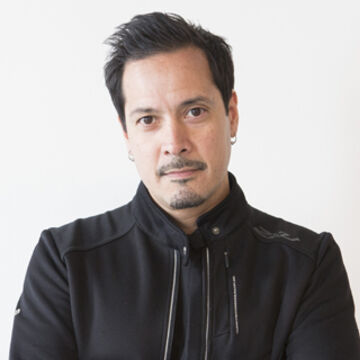

Roberto Sifuentes
Professor
Contact
Bio
BA, 1989, Trinity College Hartford CT. Founding Member: La Pocha Nostra Performance Group. Performances/Installations: National Review of Live Art, Glasgow; Arnolfini Gallery, Bristol; Performance Studies International/Live Art Development Agency, London; Center for Performance Research, Wales; Hemispheric Institute, Centro Cultural Recoleta, Buenos Aires; Corcoran Gallery of Art, Washington DC; Detroit Institute of Arts; De Young Museum, San Francisco; Highways Performance Space, Los Angeles; Performance Space 122, El Museo del Barrio, Creative Time NYC. Collections: Smithsonian Archives of American Art. Books/Publications: "Exercises for Rebel Artists, Radical Performance Pedagogy," Routledge 2011; "Temple of Confessions: Mexican Beasts and Living Santos," co-authored with Guillermo Gómez-Peña, Powerhouse Books, 1997. Bibliography: Performance Research; TDR: The Drama Review; Theater Forum.